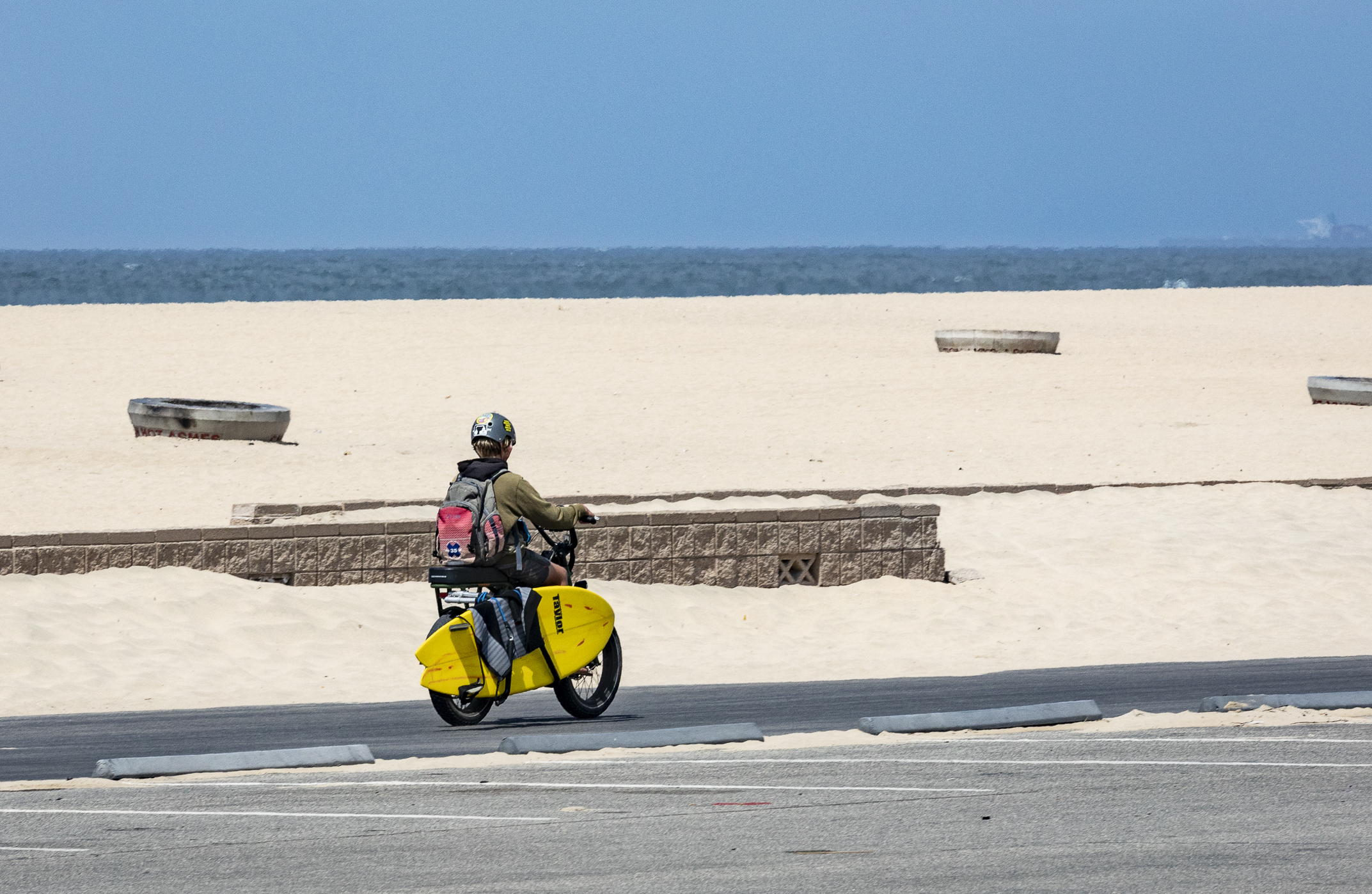Special devices are being sold in California to make electric bikes faster, but not for much longer—not legally, anyway.
Gov. Gavin Newsom this month signed Assembly Bill 1774, which will ban the sale of devices known as “tuning kits.”
The devices generally are sold and marketed as something that makes e-bikes faster than their legal limits, sometimes being advertised as “completely undetectable and ... easily deactivated, any time you need to avoid unwanted attention,” according to the Senate analysis submitted with the bill.
Under California law, e-bikes are classified in three categories. Class 1 represents pedal-assisted electric bikes limited to speeds of 20 mph. Class 2 has the same maximum speed without pedal assistance, while Class 3 bikes are limited to 28 mph, with pedal assistance, and require speedometers.
Bike manufacturers are required to affix labels that show a bike’s classification number, top assisted speed, and motor wattage—which is limited to 750. Modifications are allowed if the bike remains within legal limits, but require appropriate labeling.
The bill itself sets “no particular penalty” for violators of the new law, and it doesn’t authorizes any agency to enforce it, but per the Vehicle Code, offenders would be subject to a fine of up to $100 for first offenses.
The bill’s author, Assemblywoman Diane Dixon who’s a former mayor of Newport Beach, says the bill will help local governments further regulate the e-bike industry, including the safety of their public boardwalks
“I recognize that e-bikes have provided all age groups an alternative form of transportation that can be beneficial when safety precautions are taken. ... AB 1774 will protect our communities by encouraging safe biking practices,” Ms. Dixon said in the analysis.
Some research suggests e-bikes injure more bystanders than traditional bikes. A U.S. Department of Transportation Federal Highway Administration report said e-bike crashes are three times more likely to involve a pedestrian.
Also, the California Highway Patrol reports e-bike crashes are generally more severe than crashes on traditional bikes, according to a January information sheet on the bill.
A 2023 report by the U.S. Consumer Product Safety Commission said that nationwide there were an estimated 53,200 emergency room visits and 104 deaths because of e-bike accidents from 2017 through 2022. Estimated emergency room visits show an increase from fewer than 10,000 in 2017 to nearly 30,000 in 2022.
Opponents of the bill say many owners use modified e-bikes responsibly and need the extra speed to keep up with car traffic in areas without bicycle lanes.
Ms. Dixon, acknowledges in her analysis that “The suppliers of these devices may continue to operate in defiance of this bill.”














